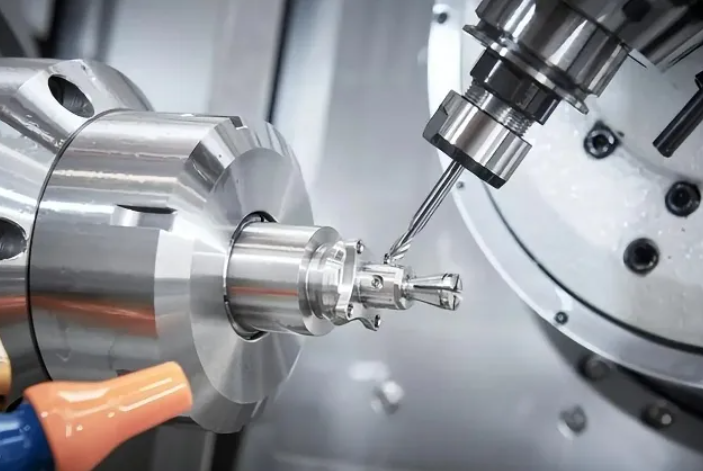Understanding CNC Machining Materials and Their Applications

Introduction to CNC Machining
CNC machining has become a crucial technology in modern manufacturing, enabling precise and efficient production of parts across various industries. The selection of the right materials plays a pivotal role in achieving accurate, durable, and high-performing components. Choosing suitable cnc machining materials directly affects the quality, cost, and functionality of the finished products.
Categories of CNC Machining Materials
CNC machining materials can be classified into three main groups: metals, plastics, and composites. Each category has distinct properties that make them ideal for specific applications.
Metal Materials
Metals are widely used due to their strength, durability, and heat resistance. Common metals in CNC machining include:
- Aluminum: Lightweight and corrosion-resistant, aluminum is easy to machine and widely used in aerospace, automotive, and electronic applications.
- Stainless Steel: Known for its high strength and resistance to corrosion, stainless steel is ideal for medical devices, chemical processing equipment, and structural components.
- Brass: Offers good machinability and corrosion resistance, making it suitable for decorative parts, electrical components, and fittings.
- Titanium: Extremely strong yet lightweight, titanium is often used in aerospace, medical implants, and high-performance automotive components.
Plastic Materials
Plastics are chosen when weight reduction, chemical resistance, or insulation is necessary. Some commonly used plastics include:
- Acrylic: Transparent and easy to shape, acrylic is used in displays, signage, and protective covers.
- Nylon: Strong and wear-resistant, nylon is ideal for gears, bushings, and other mechanical parts.
- Polycarbonate: Offers impact resistance and is used in electronics, safety equipment, and lenses.
- Acetal (Delrin): Provides low friction and dimensional stability, making it suitable for precision mechanical components.
Composite Materials
Composites combine two or more materials to achieve superior properties. Carbon fiber reinforced plastics and fiberglass are common composite cnc machining materials. They are used in aerospace, automotive, and sporting equipment due to their lightweight and high strength.
Key Considerations When Selecting Materials
Choosing appropriate cnc machining materials requires careful evaluation of several factors to ensure optimal performance.
Mechanical Properties
Strength, hardness, flexibility, and toughness are crucial for ensuring components withstand operational stress. Metals such as stainless steel and titanium offer excellent strength, while plastics like nylon provide flexibility and shock absorption.
Machinability
Machinability determines how easily a material can be cut and shaped. Highly machinable materials like aluminum and brass reduce production time and minimize tool wear, while harder metals require specialized tools and slower machining speeds.
Thermal and Chemical Resistance
Components exposed to high temperatures or corrosive environments need materials that can resist degradation. Stainless steel and polycarbonate are commonly chosen for such applications due to their thermal stability and chemical resistance.
Cost and Availability
Budget and material availability are important factors. While premium materials such as titanium offer superior properties, they are more expensive. Balancing CNC machining materials cost with material performance is key to efficient manufacturing.
Benefits of Using Proper Materials
Selecting high-quality cnc machining materials provides several advantages:
- Enhanced Precision: Consistent material properties help maintain tight tolerances during machining.
- Durability: Strong and wear-resistant materials extend the life of components.
- Design Flexibility: Suitable materials allow the creation of complex geometries and intricate designs.
- Cost Efficiency: Using the right materials can reduce machining time, tool wear, and maintenance costs.
See also: The Evolution of Sports: How Technology Is Changing the Game
Industrial Applications of CNC Machining Materials
CNC machining materials are employed across various industries, each requiring specific properties for optimal performance.
Aerospace Industry
Lightweight metals like aluminum and titanium are used for aircraft structures, engine components, and landing gear due to their high strength-to-weight ratio and durability.
Automotive Industry
Metals and plastics are employed in engines, transmissions, and interior components. High-strength steel and aluminum alloys are preferred to withstand mechanical stress and temperature fluctuations.
Medical Industry
Biocompatible metals like titanium and stainless steel are used for implants, surgical tools, and prosthetics. Plastics such as polycarbonate and acetal provide durability and chemical resistance for medical devices.
Electronics and Technology
Lightweight metals and plastics are ideal for electronic housings, connectors, and heat sinks. Materials with thermal conductivity and electrical insulation properties are crucial in this sector.
Emerging Trends in CNC Machining Materials
The evolution of cnc machining materials continues to support innovation in manufacturing:
- Advanced Alloys: New metal alloys offer higher strength, corrosion resistance, and machinability.
- Reinforced Composites: Carbon fiber and fiberglass are increasingly used for lightweight, durable components.
- Sustainable Plastics: Eco-friendly plastics reduce environmental impact and industrial waste.
- Smart Materials: Materials that respond to environmental changes, enhancing component functionality.
Conclusion
Selecting the right cnc machining materials is essential for producing high-quality, durable, and cost-effective components. Metals, plastics, and composites each provide unique advantages suitable for different applications. By understanding material properties, mechanical requirements, and industry standards, manufacturers can optimize production processes and achieve superior results. As new materials continue to emerge, CNC machining remains a versatile and indispensable technology in modern manufacturing.





